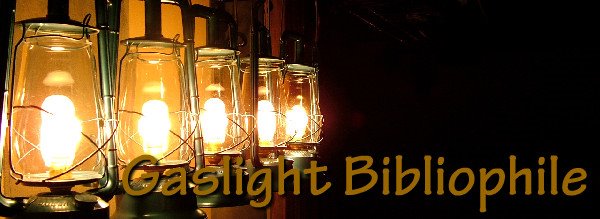
Little Brother by Cory Doctorow
Doctorow, Cory. Little Brother. New York: TOR, 2008. 382 pages. $17.95 ISBN 0765319853
Readers Annotation: When the government is the enemy, the only way to survive is to be a traitor.
Plot Summary: W1n5t0n and his friends love to hack computers and the web. It is what they do and what they are good at. They also love to play games. One of their games leads them into the wrong place at the wrong time. When terrorists strike San Fransisco everyone is held accountable. W1n5t0n, aka Marcus, and his friends are picked up by the Department of Homeland Security and held on Treasure Island for days. After Marcus is finally release he is told he cannot tell anyone where he has been, who had him or what he was doing. Worst of all, his best friend Darryl is missing. Marcus decides to create M1k3y, a hacker extraordinaire whose sole purpose in life is to defeat the DHS, find Darryl and expose the truth of what happened to so many missing people. Along the way he meets Ange, another hacker and computer geek who feels the same way he does. Together they try to expose the DHS for who they are and get the people to take back their city. If only it was that easy.
Critical Evaluation: Little Brother is an ingenious look at what terrorist attacks can do to a city, a country and a government. It is also an intriguing glimpse into the mind of a computer-whiz and adept hacker. I learned about the ins and outs of computers, servers, the Internet and freedom movements I never knew about. Doctorow's writing style is personable and engaging, and his computer lingo is daunting but not unattainable. Little Brother made me appreciate the unknown world of computers and cyberspace. And although it could be considered science fiction, I'm sure there is more truth behind the story than we know.
Information about the Author: Cory Doctorow is a computer genius, author of several fiction books as well as non-fiction about computers and the Internet. He is co-editor of boingboing.net and very active in the Electronic Frontier Foundation and other civil liberties campaigns.
Genre: Science Fiction, Thriller
Age Level: Ages 14 and up
Curriculum Ties: A great book to use in addition to 1984 and Brave New World, as a look into how totalitarian governments can become.
Book talking ideas: Discuss the wonders of computers and the Internet. Then discuss what would happen if our freedoms were taking away, such as how, why, when and where we use computers and the Internet.
Challenge Issues: Some people may have issues with the seemingly anti-government ideas in the novel.
Why I included it: I included Little Brother not just because we read it for class, but because it opened my eyes to the amazing world of computers and the Internet. I never knew any of the stuff I learned while reading the book. I also think there should be more civil liberties activism. Little Brother was nominated for the Hugo, Nebula, Sunburst and Locus awards in 2008.
Doctorow, Cory. Little Brother. New York: TOR, 2008. 382 pages. $17.95 ISBN 0765319853
Readers Annotation: When the government is the enemy, the only way to survive is to be a traitor.
Plot Summary: W1n5t0n and his friends love to hack computers and the web. It is what they do and what they are good at. They also love to play games. One of their games leads them into the wrong place at the wrong time. When terrorists strike San Fransisco everyone is held accountable. W1n5t0n, aka Marcus, and his friends are picked up by the Department of Homeland Security and held on Treasure Island for days. After Marcus is finally release he is told he cannot tell anyone where he has been, who had him or what he was doing. Worst of all, his best friend Darryl is missing. Marcus decides to create M1k3y, a hacker extraordinaire whose sole purpose in life is to defeat the DHS, find Darryl and expose the truth of what happened to so many missing people. Along the way he meets Ange, another hacker and computer geek who feels the same way he does. Together they try to expose the DHS for who they are and get the people to take back their city. If only it was that easy.
Critical Evaluation: Little Brother is an ingenious look at what terrorist attacks can do to a city, a country and a government. It is also an intriguing glimpse into the mind of a computer-whiz and adept hacker. I learned about the ins and outs of computers, servers, the Internet and freedom movements I never knew about. Doctorow's writing style is personable and engaging, and his computer lingo is daunting but not unattainable. Little Brother made me appreciate the unknown world of computers and cyberspace. And although it could be considered science fiction, I'm sure there is more truth behind the story than we know.
Information about the Author: Cory Doctorow is a computer genius, author of several fiction books as well as non-fiction about computers and the Internet. He is co-editor of boingboing.net and very active in the Electronic Frontier Foundation and other civil liberties campaigns.
Genre: Science Fiction, Thriller
Age Level: Ages 14 and up
Curriculum Ties: A great book to use in addition to 1984 and Brave New World, as a look into how totalitarian governments can become.
Book talking ideas: Discuss the wonders of computers and the Internet. Then discuss what would happen if our freedoms were taking away, such as how, why, when and where we use computers and the Internet.
Challenge Issues: Some people may have issues with the seemingly anti-government ideas in the novel.
Why I included it: I included Little Brother not just because we read it for class, but because it opened my eyes to the amazing world of computers and the Internet. I never knew any of the stuff I learned while reading the book. I also think there should be more civil liberties activism. Little Brother was nominated for the Hugo, Nebula, Sunburst and Locus awards in 2008.




0 comments:
Post a Comment